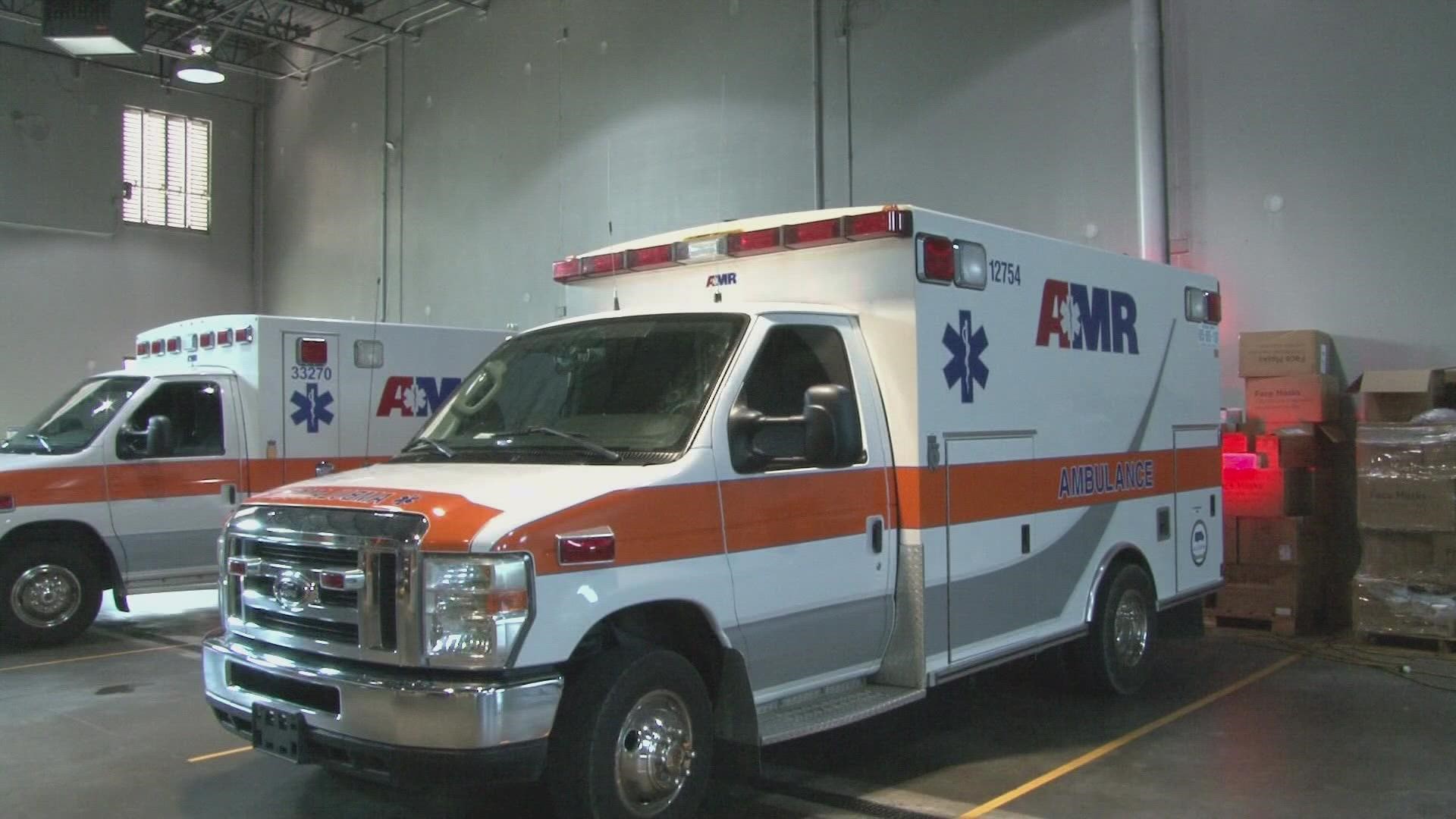KNOXVILLE, Tenn. — Officials in Knox County said the COVID-19 pandemic uncovered a problem for first responders and the healthcare system at large.
"I think the pandemic exposed what was already a taxed system in EMS," AMR Southeast regional director Joshua Spencer said. "This system, obviously, it's a very difficult job, it's very hard on employees. We see things that people just don't want to have to see every single day in many situations."
Spencer said sometimes paramedics are arriving later than expected. It depends on the call and whether it is an emergency. They prioritize people who are in situations that are matters of life or death.
"The truth is, since the pandemic, many people have left the healthcare industry completely. So it's left us with quite a void, not just in EMS, but in all of all healthcare," he said.
AMR sends out an average of 15 to 20 ambulances per day. When paramedics are short-staffed, an ambulance might take longer to off-load a patient at the hospital, which delays the response to the next emergency call.
When the paramedic doesn't arrive within 10 minutes, the Knox County Health Department fines AMR. Before the pandemic, AMR had been seeing an average of $10,000 to $20,000 in monthly fines.
"Post-pandemic, because of all the stresses that is on the healthcare system as a whole and staffing and all that, sometimes those fines can be well within the six digits... several hundreds of thousands per month," Spencer said.
The Knoxville Fire Department said it receives about 65% of emergency medical calls daily. What adds to the problem is that some people call 911 for things as small as a toothache.
"If it's an emergency, a true emergency, where someone's life is on the line, then we expect an ambulance to come quickly," Assistant Chief KFD Mark Wilbanks said.
KFD is known as a first responder service and is one of the first to arrive on the scene of a 911 call. They often go out and stabilize the patient until the ambulance arrives. So, Wilbanks explained they only answer what is known as Priority One calls or immediate life-threatening calls.
Both KFD and AMR said callers should assess the situation before calling in order to help the healthcare system that is struggling.
"When you think about dialing 911, you should be thinking if this is life-threatening," Wilbanks said. "Could I possibly die because of the situation that I'm in? Trauma, heart attack, stroke-type situations."

